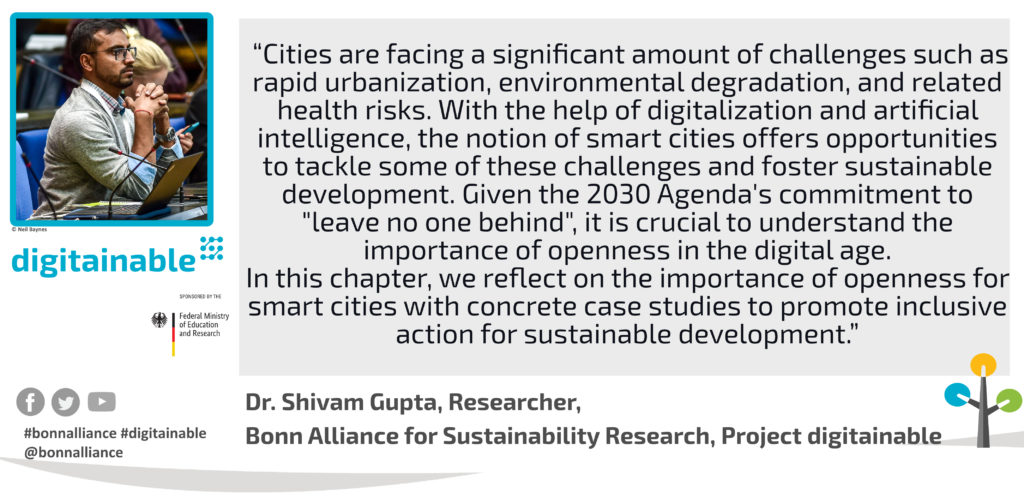Dr. Shivam Gupta, along with the international network of researchers, authored an inspiring chapter in the “Handbook of Smart Cities” (Springer Nature Switzerland AG 2021) on “Openness: A Key Factor for Smart Cities”.

Abstract:
Smart cities incorporate a variety of technologies into the urban fabric and provide services based on these technologies, different types of data, and its analysis. How these technologies, services, data, and analyses are designed and governed has far-reaching implications for how a smart city operates and how its citizens experience it. Proprietary technologies, opaque analyses, and closed data can have a negative impact on acceptance, inclusion, sovereignty, and innovation. Conversely, opening up data and analysis as well as facilitating easy access and interoperability have the potential to positively affect these factors. In this chapter, the concept of openness in the context of smart cities is introduced. The concept describes on multiple levels how open (or closed) a city is. Openness in smart cities incorporates three key dimensions – transparency, participation, and collaboration – which affect various domains such as data processing or service provision. Using examples from ongoing and previous research, this chapter also discusses how to realize openness in practice and what benefits and drawbacks can result from different degrees of openness. Based on these considerations, a number of key issues are highlighted that are important to take into account in the design of smart cities and in the transformation process towards a sustainable, smart, and open city.
Read the full chapter here.